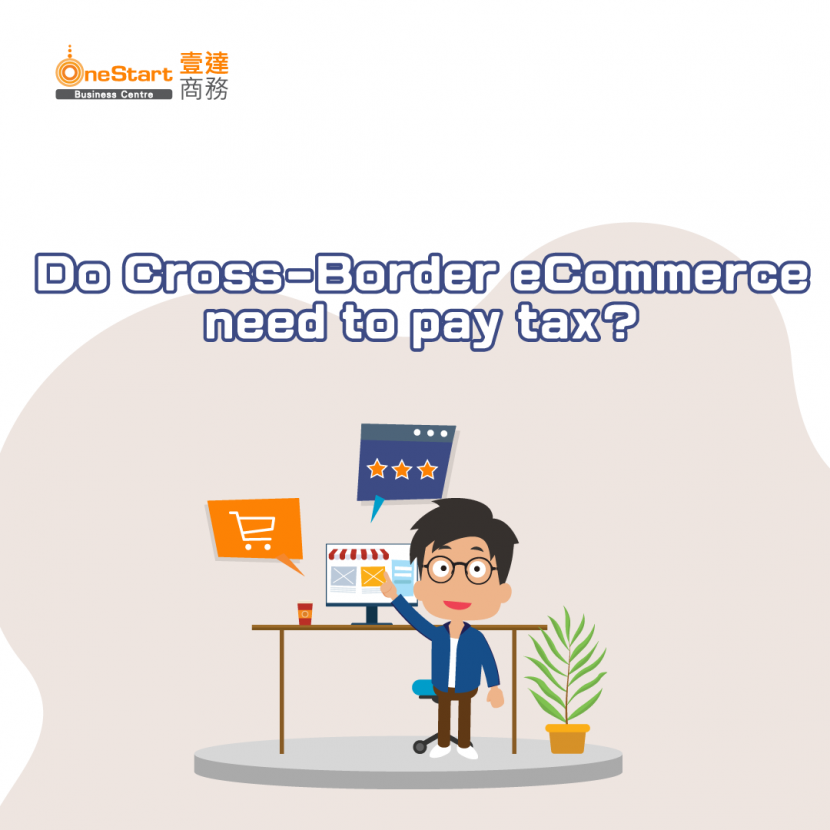Related Article:
【Start a Online Shop Promotion】$1618 for Business Registration and Additional Services!
Should You Open an Online Store? Essential read of its Pros and Cons
Table of contents |
With the rapid growth of the global online shopping market, an increasing number of businesses are expanding into international markets, seizing the vast opportunities brought by global customers. However, this expansion also brings various tax-related challenges. This article will explore how Hong Kong companies can effectively manage tax issues when operating cross-border eCommerce and identify situations in which profits tax is applicable.
1. What is Cross-Border eCommerce? Is Tax Filing Required in Hong Kong?
Cross-border eCommerce refers to businesses selling goods or providing services to global customers through online platforms, typically involving international shipping and payment processing. The main business models of cross-border eCommerce include:
- Selling directly to overseas consumers through a self-established website
- Selling on third-party platforms such as Amazon and eBay
- Collaborating with overseas companies
Is tax filing required for cross-border eCommerce in Hong Kong?
According to the Hong Kong Inland Revenue Department's Inland Revenue Ordinance:Territorial Source Principle of Taxation, only profits arising in or derived from Hong Kong are subject to profits tax. If the primary business activities of the cross-border eCommerce operation (such as website management, sales administration, inventory control, etc.) are conducted in Hong Kong, these profits may be considered Hong Kong-sourced and therefore subject to profits tax.

2. Situations Where Cross-Border eCommerce May Be Liable for Profits Tax
According to the Hong Kong Inland Revenue Department, cross-border eCommerce may be liable for profits tax under the following circumstances:
- Business Operations in Hong Kong: If a company's primary business operations (such as website development, customer service, etc.) are conducted in Hong Kong, the profits may be considered Hong Kong-sourced and subject to profits tax.
- Sales Contracts Signed in Hong Kong: If purchase or sales contracts are signed in Hong Kong, the territory may be regarded as the source of the profits, making them subject to profits tax.
- Warehousing and Logistics Facilities Located in Hong Kong:If a cross-border eCommerce business uses warehouses in Hong Kong to store goods and ships them from there, these business activities may be deemed to take place in Hong Kong, requiring a portion of the profits to be taxed locally.

3. Situations Where Profits Tax May Be Exempt
In certain situations, businesses may apply for profits tax exemption. For cross-border eCommerce, the following scenarios may qualify for exemption:
- Main Business Activities Conducted Abroad: If a company can prove that its primary business activities (such as marketing, contract signing, product delivery, etc.) are conducted outside Hong Kong and that the source of profits is not Hong Kong, those profits may not be subject to Hong Kong profits tax.
- Double Taxation Relief: Hong Kong has entered into double taxation agreements with several countries and regions to prevent businesses from being taxed twice on the same profits in multiple jurisdictions. This ensures that companies are not subject to duplicate taxation.
- Management Located Abroad:If a company can demonstrate that its business is managed primarily outside Hong Kong, its profits may not be considered Hong Kong-sourced, potentially qualifying for profits tax exemption.
How to Handle Tax Arrangements for Cross-Border eCommerce
For cross-border eCommerce companies, proper tax planning can significantly reduce the tax burden. Here are a few recommendations:
- Leverage Tax Incentives:The Hong Kong government offers various tax incentives, such as deductions for R&D expenses and tax relief for small and medium enterprises (SMEs). Cross-border eCommerce companies can take advantage of these policies to reduce tax costs.
- Benefit from Hong Kong's Low Tax Rates: Hong Kong's low tax rates and absence of capital gains tax provide a favorable environment. Cross-border eCommerce businesses can establish their headquarters in Hong Kong to enjoy these tax advantages.
- Utilize Double Taxation Agreements:Fully utilize the double taxation agreements that Hong Kong has signed with other countries and regions to avoid increased operational costs due to double taxation.
- Regular Tax Compliance Reviews:Cross-border eCommerce companies should regularly review their tax arrangements to ensure all business activities comply with tax regulations in Hong Kong and other jurisdictions. Adjust tax strategies according to the latest laws or regulations to avoid potential tax risks.

4. Conclusion
As Hong Kong companies expand into global markets, they must carefully manage tax issues. Tax planning should be conducted prudently based on the nature of the business and the operational model. Lastly, cross-border eCommerce companies should regularly review their tax strategies to respond to changes in the global market and tax environment. By collaborating with professional tax advisors, companies can develop effective tax strategies, ensuring compliance and maximizing profits, thereby achieving steady growth in the global market.
OneStart Business Centre has years of experience and dedicated staff to assist enterprises in Company Tax Filing and business registration service. Please feel free to call or WhatsApp (852) 3575 6888 to our OneStart Business Consultant.
Click to WhatsApp OneStart:
Know More About Our Services:
 |
 |
 |













